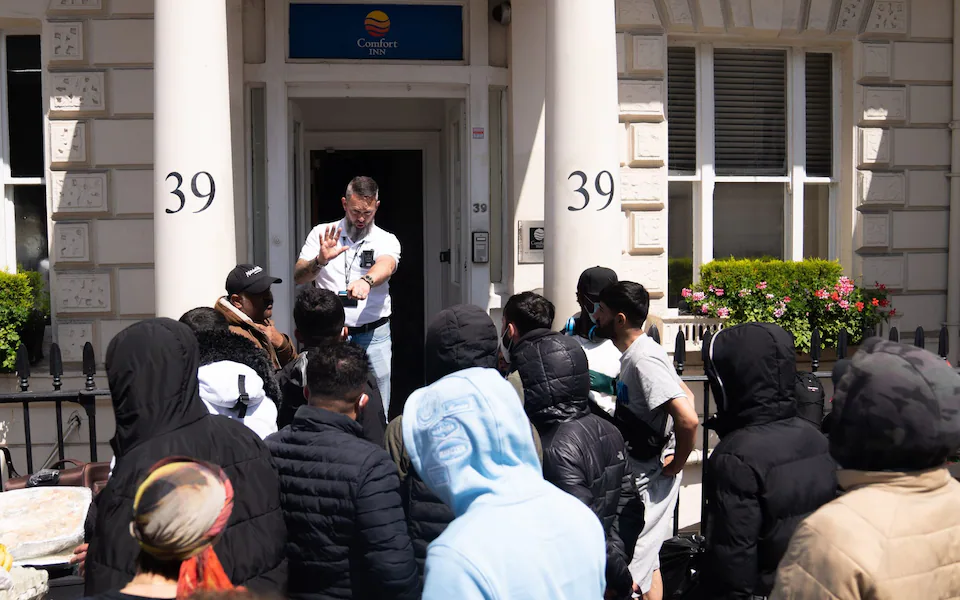Labour has decided to extend the use of migrant hotels for four more years, despite previous promises to phase out the system as quickly as possible. Sir Matthew Rycroft, the Home Office’s top civil servant, revealed that the government now aims to exit asylum hotels by 2029, marking a shift from earlier commitments to end their use swiftly. He described the transition as being “off to a good start,” with the number of hotels in use dropping from over 400 to 218.
The government has moved away from larger migrant housing sites like the Bibby Stockholm barge and former military bases, opting instead for smaller locations, some of which have been purchased by the Home Office, while others are private rental properties. The Labour Party’s manifesto did not include a specific timeline for ending the use of hotels, but it did claim that scrapping them would “save the taxpayer billions of pounds.” However, since Sir Keir Starmer took office, Labour has clarified that while it remains committed to ending hotel accommodations, the process “will take time.”
Border Security Minister Dame Angela Eagle recently reported a net increase of six migrant hotels, though she assured the public that nine are set to close by the end of March. The reliance on large-scale accommodations under the previous Conservative government had already drawn criticism due to high costs. The Bibby Stockholm barge, for instance, was deemed financially inefficient by the National Audit Office (NAO) after its evacuation. Meanwhile, the former RAF base at Wethersfield in Essex continues to house approximately 540 migrants.
Concerns about the rising costs of migrant accommodations have led government officials to explore alternative solutions. The current hotel scheme reportedly costs the UK around £5.5 million per day. In response, Whitehall officials have been investigating the possibility of replacing expensive hotels and military sites with disused care homes and empty student flats, which are seen as more affordable and sustainable options.
A Home Office spokesperson acknowledged the ongoing challenges within the asylum system, stating that Labour remains “absolutely committed to ending the use of hotels to ensure value for money.” The spokesperson added that the government has identified a shortlist of alternative properties that could allow them to phase out hotels sooner. However, critics argue that the timeline remains too vague, with Labour’s latest stance suggesting a longer transition period than initially promised.
The government’s decision to continue using hotels for at least four more years has sparked controversy, particularly among those who had hoped for a faster resolution. While Labour insists that ending the scheme remains a priority, concerns persist over whether their approach will effectively address the financial and logistical burdens associated with migrant housing. Some opposition voices argue that the government must take more decisive action to avoid further delays and spiraling costs.
As the debate continues, Labour faces pressure to deliver a clear, practical solution that balances financial responsibility with humane treatment of asylum seekers. The coming years will be crucial in determining whether the party can effectively transition away from hotel accommodations while maintaining public trust and fiscal discipline.

